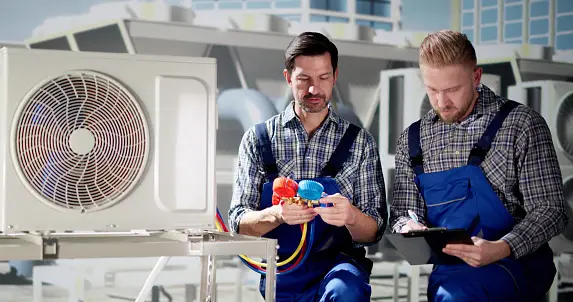
In Florida’s hot climate, a reliable air conditioning (AC) unit is essential for maintaining indoor comfort. Over time, even the best AC systems can wear out and become less efficient. Knowing the signs that indicate it’s time to replace your old AC unit can help you make a timely decision and avoid unexpected breakdowns. Here’s a practical guide to recognizing when it’s time for a replacement.
Age of the AC Unit
One of the primary indicators that your AC unit may need replacing is its age. Most air conditioners have a lifespan of 10-15 years. If your unit is approaching or has exceeded this age range, it’s worth considering a replacement. Older units are more prone to breakdowns and may not operate as efficiently as newer models.
Frequent Repairs
If you find yourself calling for repairs frequently, it may be time to replace your AC unit. Frequent repairs often signal that the system is reaching the end of its lifespan. Consider the cost of these repairs compared to the cost of a new unit. If repairs are becoming a regular occurrence, replacing the system might be more cost-effective in the long run.
Rising Energy Bills
A noticeable increase in your energy bills can indicate that your AC unit is no longer operating efficiently. Older systems often have lower energy efficiency compared to modern units. If your energy bills have been rising despite regular maintenance, it might be time to invest in a new, more energy-efficient AC unit.
Inconsistent Cooling
If your AC unit struggles to maintain consistent temperatures or if you notice uneven cooling throughout your home, this could be a sign that the system is failing. Inconsistent cooling can be due to various factors, including age-related wear and tear. A new unit can provide more consistent and effective cooling.
Unusual Noises
Unusual noises such as grinding, banging, or squealing coming from your AC unit can indicate serious problems. While some noises can be repaired, persistent or severe noises often suggest that the unit is beyond repair and may need replacing. These noises may also signal failing components that are costly to fix.
Freon Leaks
Older AC units often use Freon (R-22) as a refrigerant, which is being phased out due to environmental regulations. If your unit is leaking Freon, repairs can be expensive, and obtaining the refrigerant can be difficult. A new AC unit that uses the more environmentally friendly R-410A refrigerant might be a better option.
Poor Air Quality
If you notice poor air quality in your home, such as increased dust or humidity, your old AC unit might not be filtering or circulating air effectively. Modern units come with advanced filtration systems and improved airflow capabilities that can enhance indoor air quality.
System Short-Cycling
Short-cycling occurs when your AC unit turns on and off frequently. This can be a sign that the unit is struggling to reach the desired temperature or is experiencing mechanical issues. Short-cycling can reduce the lifespan of the system and often indicates that replacement is needed.
Conclusion
Recognizing the signs that your old AC unit needs to be replaced can help you avoid the discomfort and inconvenience of a system breakdown. Key indicators include the age of the unit, frequent repairs, rising energy bills, inconsistent cooling, unusual noises, Freon leaks, poor air quality, and system short-cycling. By paying attention to these signs, you can make an informed decision about replacing your AC unit and ensure that your home remains comfortable and energy-efficient.